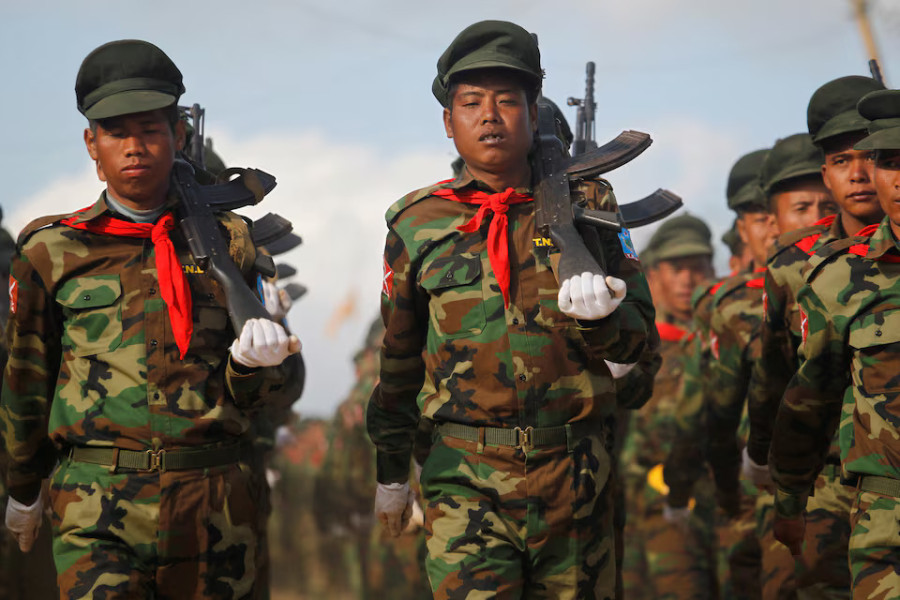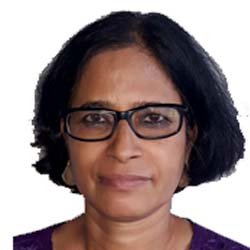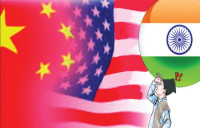Columns
Will election in Myanmar bring peace?
Without a free and fair election, Myanmar’s return to peace will be a daunting task.
Smruti S Pattanaik
In a surprise move, on August 18, the Myanmar military junta, known as Tatmadaw, announced that it will hold the first phase of elections in December this year while lifting the state of emergency imposed since it took power. Since last year, the Tatmadaw has been asking the armed group to abandon their resistance to participate in the election, which has been rejected by the Ethnic Armed Organisation (EAO). The junta, which assumed power in 2021 after the Union Solidarity and Development Party (USDP), a party it supported, lost the election, has been facing a military debacle posed by the Armed Ethnic group of Three Brotherhood Alliance (TBA).
China and the TBA
Though the junta held ground in Rakhine state, it ceded territory to the Arakan Army. In Kachin and Karen states, China brokered peace between the Chinese-speaking Kokang ethnic minority army, which is also known as the Myanmar National Democratic Alliance Army (MNDAA), in January this year. It negotiated a ceasefire in northern Shan state with the Ta’ang National Liberation Army. It forced the United Wa State Army (UWSA), another powerful rebel group in eastern Shan state, to negotiate with the Myanmar Army. As a result, the UWSA withdrew from Lashio, the most important town that would have threatened the junta’s control of Mandalay. It already experienced a setback in Myawaddy, in Karen state near the Thailand border, where hundreds of soldiers surrendered.
China opened the border after the truce was signed, as the border remains a lifeline for the Shan state. China applied pressure on the Kachin National Army, Ta’ang National Army and the Arakan Army, which now controls 14 of 17 townships in Rakhine and defines its offensive “war of national liberation.” Sometimes, a ceasefire is not effective as these Armed groups have their own interests. Yet China managed to force the TBA to cease hostilities. China has now forced UWSA to cease all forms of support to allied groups for violating ‘China’s policy of “no war and no unrest” in northern Myanmar’ through its Operation 1027.
China and the election
The opposition has decided to boycott the election, while other factions remain unsure. Some see this as the military’s attempt to entrench power politically, while the ethnic group would not gain a politically significant position. Many believe that after Min Aung Hlaing’s November visit to Kunming, China is playing an important role in ensuring that the December election takes place.
On July 25, the US announced that it is lifting sanctions on several allies of Myanmar’s ruling generals. Myanmar had appealed to Trump to reduce the tariff on its exports and also reduced imports tariff from the US to 10 percent. Moreover, the main geopolitical competition seems to revolve around the rare earth minerals available in Myanmar, now mined by China.
Instability in Myanmar undermines China’s security, and its interest in extracting rare earth minerals in Kachin state and accessing the Bay of Bengal through Myanmar is a big problem. China does not support ethnic-based federalism but wants a semblance of peace to return to Myanmar.
Unlike other countries where a return to democracy promises political accommodation, for Myanmar, it is buying peace with the warring ethnic groups. The junta has said it will not tolerate any criticism of the election and announced a prison sentence of 10 years for those critical of the impending election. It is unclear whether the junta will allow Aung San Suu Kyi to participate in the election. The Election Commission has declared that the election will be held in all 330 of Myanmar’s townships, including those controlled by the rebel groups, perhaps a claim not matched by the area that the junta controls.
What will the election achieve?
It is believed that the election will give legitimacy to the Tatmadaw. Since 2021, the military junta has been fighting the ethnic armed organisations that are trying to assert autonomy and have gained territory in their ethnic homeland. The junta has suffered military reverses even after using lethal military weapons and helicopter gunships, drawing international condemnation. Military-run detention centres have emerged as centres for torture, rape and intimidation of pro-democracy activists as well as those opposed to the military. Its carrot-and-stick policy to conscript ethnic fighters living in the military-controlled area to battle against the ethnic armed group has not gone unnoticed by the international human rights watchers. As the conflict with the Arakan Army intensified in the Rakhine state, boatloads of Rohingya reached the Bangladeshi coast, exacerbating the conflict beyond its border.
The military has remained under pressure without gaining much political ground, while the country has erupted into civil war. In any case, the military enjoys a pivotal position under the country’s 2008 constitution, occupying one-fourth of the seats in both houses of the Parliament. This provides the military with effective veto power. After cancelling the 2021 election, the military is facing debacles without corresponding benefits. China is insisting on an election as it feels that it will bring a semblance of stability to its border region and would address the illegal gambling that continues.
The National Unity Government (NUG), a parallel government with diverse leadership that comes from different ethnic groups, rejected the election. The People’s Defence Force, the armed wing of the NUG, has captured 742 bases as of December 2024. Though the ethnic army controls a larger area, they remain a formidable force challenging the Tatmadaw’s authority.
Unless the NUG agrees to participate in the election, it is unclear how the authority will force people to vote for parties backed by them. Moreover, with the participation of the NLDP and without the release of political prisoners and Aung San Suu Kyi, no election will be credible. Notably, the NUG has formed the National Unity Consultative Council to look into important matters like federalism. It has stated that it will give representation to all ethnic groups and move away from the politics of representing the majority Bamar group.
While accusing the military of buying impunity for its war crimes through the election, the NUG, in a statement issued on August 25, said that it is committed to the “Federal Democracy Charter, which mandates the drafting and adoption of a Federal Democratic Constitution through a nationwide referendum, followed by free and fair elections.” It asked the international community not to support the ‘sham’ election. Without a free and fair election, Myanmar’s return to peace will be a daunting task.




 21.71°C Kathmandu
21.71°C Kathmandu















